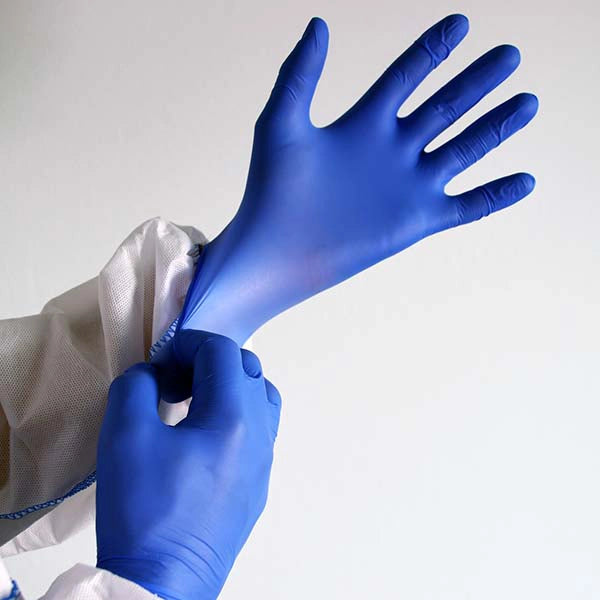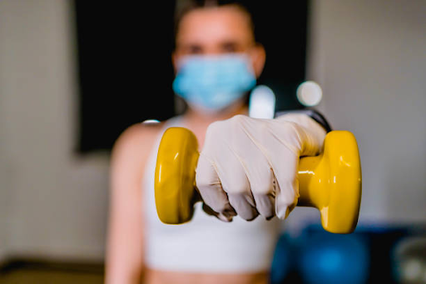To minimize the risk of infection and disease transmission, tattoo facilities must be as clean as hospital rooms. Tattoo artists and staff must follow guidelines that minimize the spread of infections resulting from the services they provide. In short, tattoo shops must maintain high standards of hygiene and sanitation.
While the work of a tattoo artist is often viewed as a form of art, the process can be incredibly invasive to the body. During a tattoo session, a series of needles are inserted into the skin and ink is injected into the dermal layer.
In order to prevent bacteria, viruses and other unwanted particles from entering the client’s bloodstream, all equipment must be sterilized prior to use as well as during and after each use.
As an artist, it is important to be safe and professional when tattooing. By wearing medical-grade gloves, you will protect yourself as well as clients from any bloodborne pathogens that may be on the skin.
Gloves offer tattoo artists protection from the transmission of dirt, bacteria, viruses, and unwanted particles to their clients' skin. They also provide a barrier between users and the equipment.
However, it can be a struggle to choose which disposable gloves to purchase. With the wide availability of gloves, even those of inferior quality, finding the perfect pair for a tattoo artist's specific needs can be a challenge.
In this article, we will explain why tattoo gloves are important and discuss how to choose the best tattoo artist gloves.
Why Are Gloves For Tattooing Important?
The professional tattoo artist needs to be aware of blood-borne pathogens, infection control techniques and other health regulations in order to avoid transmitting diseases through contact with their client. A tattooist makes an open wound on the customer’s skin, which means that he or she must touch and stretch their client’s skin in order to create their artwork.
In order to protect all parties involved, a fresh pair of tattoo gloves must be worn for every client.
Without gloves, both the tattoo artist and client can be exposed to viral diseases, skin infections, bacteria transmission, cross-contamination of the whole work area, risk of the tattoo getting infected, and messing up the ink on their hands, and their equipment.
Factors to Consider When Shopping for the Best Gloves For Tattooing
When choosing the best tattoo gloves for your business, it’s important to consider several features. Gloves vary widely in style, size, and construction so before making a purchase, check these factors below to help you make an informed decision:
Type of Material
Tattoo gloves are made with three main materials to ensure they are durable and maintain the medical grade of protection at a high level. Some of these gloves may work for one person, while others would work best for another person.
-
Latex gloves are widely available and affordable while also being durable. Latex is also strong, stretchy, and a good fit for the artist regardless of hand size. It can also guard against cuts and punctures.
However, latex can cause mild to severe allergic reactions in some people, especially those with sensitive skin. Depending on the clients, it is also important to talk to them about their allergies as well as a safety precaution. If anyone you tattoo has a latex allergy, it’s best to use powder-free gloves like Nitrile or Vinyl gloves rather than disposable latex gloves.
-
Vinyl gloves are stronger and more durable material, so they are more comfortable to wear in the long run. Vinyl protects your hands from ink and contamination. They are also used for protection when touching chemicals, oils, and other materials that will harm your bare skin.
However, these gloves are thicker and more resistant to exposure than latex gloves which may make it hard for the artist to work.
- Nitrile gloves have many advantages over latex rubber gloves and vinyl gloves. Nitrile gloves are more comfortable than natural latex, stronger than latex, and more durable than vinyl despite being thinner. This means that best black nitrile gloves for tattooing provide an exceptional degree of freedom of movement without compromising safety.
Comfort
Tattoo artists spend hours on end drawing a client's design—an experience requiring a lot of time, dedication, and patience. Hence, it is important to have the best gloves that will allow finger mobility, so they can use their hands to their full potential.
However, this all depends on what gloves you wear. Vinyl, despite being the most popular in beauty salons and spas, does not give the good grip and sensitivity needed for tattooing, unlike latex gloves and nitrile gloves.
Fit
For a perfect fit, the glove should not be too tight or loose and the fingers should not be too short or too long. Purchasing the right fit for your hand can be challenging due to the wide range of hand sizes and shapes. Hand sizes can vary from person to person and from brand to brand.
Dexterity
Dexterity, or the ease with which an object can be handled and/or manipulated, depends on a variety of factors relating to the object being handled. It will take some time to discover the sort of gloves that will provide sufficient dexterity, but once you do, you will never want to use any other kind of glove again.
Color
Black tattoo gloves are the most common and popular of all the colors available. Tattoo artists prefer black gloves because black does a better job of hiding ink stains than any other color.
What Happens If You Tattoo Without Gloves?
Tattooing without gloves can lead to several serious health and safety risks for both the tattoo artist and the client. Gloves are a crucial part of maintaining a sterile environment and preventing the spread of infections. Here are some potential consequences of tattooing without gloves:
Increased Risk of Infection:
Without gloves, the tattoo artist’s hands can transfer bacteria, viruses, and other pathogens to the client’s skin. This can result in severe infections, which may require medical treatment and lead to long-term health issues.
Cross-Contamination:
Tattooing involves contact with bodily fluids such as blood and ink. Without gloves, there is a high risk of cross-contamination between clients, potentially spreading bloodborne pathogens like HIV, hepatitis B, and hepatitis C.
Legal and Regulatory Consequences:
Most regions have strict health regulations requiring tattoo artists to wear gloves. Failing to comply with these regulations can result in fines, legal action, and the revocation of the tattoo artist’s license.
Damage to Professional Reputation:
Clients expect a high level of hygiene and safety from their tattoo artist. Not wearing gloves can damage the artist’s reputation, leading to a loss of clients and negative reviews.
Personal Health Risks for the Tattoo Artist:
Tattoo artists are at risk of exposure to their clients’ bodily fluids, which can lead to infections and illnesses. Wearing gloves provides a necessary barrier to protect the artist’s health.
So, Which Is The Best Tattoo Artist Gloves?
The black nitrile gloves are the best gloves for tattooing. They offer the best protection and safety. Despite their thinness that allows for comfort and dexterity, they can withstand several hours of continuous work. Plus, these black nitrile gloves are non-allergic and overall great to use.
This tattoo glove is a favorite among professional tattooists and is generally recommended for use in the tattoo industry. Most tattoo gloves are black because of its resistance to color leaks and grease, and hides any stains from ink and grease. Its color makes it easier to see where the needle goes into the skin. This helps prevent accidental pricks and cuts. In addition, the black color allows the artist to easily spot any tears or holes in the glove.
Gloves For Tattooing: Frequently Asked Question
Do I need sterile gloves for tattooing?
No, you do not need sterile gloves for tattooing. Non-sterile, medical-grade gloves are sufficient, as long as they are used correctly and changed frequently to maintain hygiene. The key is to use gloves that provide a strong barrier against contaminants and protect both the tattoo artist and the client.
Do you have to wear gloves when tattooing?
Yes, wearing gloves when tattooing is mandatory. Gloves protect both the tattoo artist and the client from bloodborne pathogens and other contaminants. They help maintain a sterile environment and prevent the spread of infections. Gloves should be worn at all times during the tattooing process and changed between clients or when they become contaminated.
What PPE is needed for tattooing?
Personal Protective Equipment (PPE) needed for tattooing includes:
• Gloves: To protect against bloodborne pathogens and cross-contamination.
• Face masks: To prevent the inhalation of airborne contaminants.
• Aprons or gowns: To protect clothing and skin from ink and bodily fluids.
• Protective eyewear: To shield eyes from splashes of ink or bodily fluids.
How thick should tattoo gloves be?
Tattoo gloves should typically have a thickness of around 4 to 6 mils (0.004 to 0.006 inches). This thickness provides a good balance between protection and dexterity, allowing tattoo artists to work precisely while ensuring safety from punctures and contaminants.





